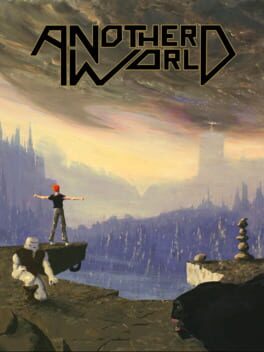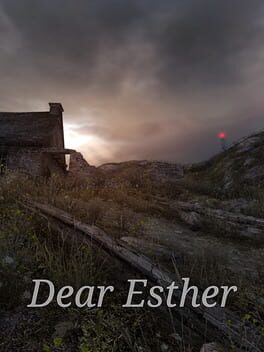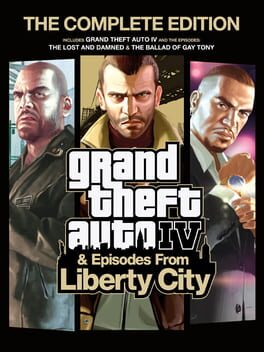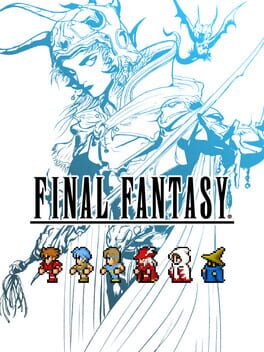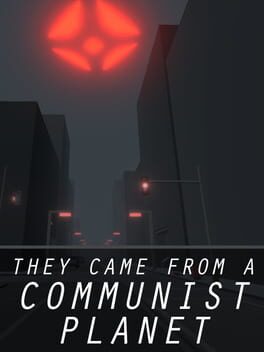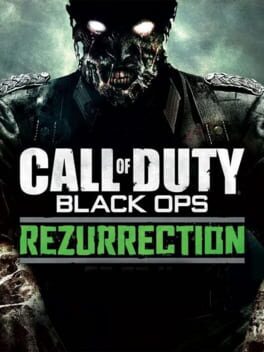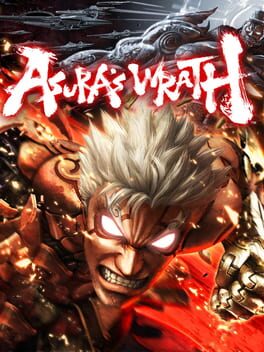speedrum
Bio
It seemed to them that he had learned nothing in forty years: We had just gotten tired.
I write poorly executed reviews that should be something bigger.
It seemed to them that he had learned nothing in forty years: We had just gotten tired.
I write poorly executed reviews that should be something bigger.
Badges

Liked
Gained 10+ total review likes

Pinged
Mentioned by another user

GOTY '23
Participated in the 2023 Game of the Year Event

Best Friends
Become mutual friends with at least 3 others

Noticed
Gained 3+ followers

Shreked
Found the secret ogre page

N00b
Played 100+ games

Roadtrip
Voted for at least 3 features on the roadmap
Favorite Games
176
Total Games Played
012
Played in 2024
364
Games Backloggd
Recently Played See More
Recently Reviewed See More
A minimalist abstraction of how a riot, maybe a revolution takes place, everything is blocky, faceless, and textureless. The gameplay involves kicking, the ability to throw blunt objects, throwing molotov cocktails with which you can destroy private property, this serving as some sort of “point” system which helps to make the story progress.
I understand that they were working with some limitations when it comes to the representation. Maybe the idea behind it was to create an experience that deals with a specific situation in a class struggle scenario. Nevertheless, what I get from it, is the praxis of an uneducated person when it comes to revolutionary theory.
If I had to say I learnt something from it, is that the destruction of private property is the main accelerating force in a revolutionary process, while it couldn’t be further from the truth, and all this permeates a very Western communist outlook. Educating the masses, political organization, the formation of a people’s vanguard party, etc, would have been much better plot points as a way to develop to the final riot sequence. Instead we begin with very brief walking simulator exploration of our apartment where we see how we’re getting fired, bills accumulate, food runs low, and so on. This leads our character, after the arrival of a messianic alien force to decide they must partake in the event. A very individualistic cause and effect, it’s as if the player wouldn’t care about the rest of the proletariat but instead decided to join by some revelation, and the same happened with everyone else. Indeed, the idea of an “insurrection”, where everyone relates to the feelings of class struggle, regardless of the superstructure, the material reality, and everything that could be against it, is very present, which shows a lack of understanding of past revolutionary processes.
I mention that the game is trying to isolate a very specific SCENARIO because I’ve also played A Bewitching Revolution and in that game you do interact with other people, since the game focuses on direct action, but I still don’t think that excuses it of the poor job it did in the process of ludification of the current game. The end result is, that this work is targeted to a very specific audience in the spectre of moderate left within first world countries, and it shows. It contains all of the checklists in anarchist delusional attempts at praxis, and reinforces certain ideas that are, if not considered thoughtfully, detrimental to revolutionary movements. It’s not that the gameplay loop was boring or that the story was poorly written, it does a good job with what they had, but the ideas behind it are mostly idealist in characteristic. We end up with a mediocre gameplay and storytelling that does it trick, and a political message that’s confusing and poor at best, and negative and harmful at worst.
I understand that they were working with some limitations when it comes to the representation. Maybe the idea behind it was to create an experience that deals with a specific situation in a class struggle scenario. Nevertheless, what I get from it, is the praxis of an uneducated person when it comes to revolutionary theory.
If I had to say I learnt something from it, is that the destruction of private property is the main accelerating force in a revolutionary process, while it couldn’t be further from the truth, and all this permeates a very Western communist outlook. Educating the masses, political organization, the formation of a people’s vanguard party, etc, would have been much better plot points as a way to develop to the final riot sequence. Instead we begin with very brief walking simulator exploration of our apartment where we see how we’re getting fired, bills accumulate, food runs low, and so on. This leads our character, after the arrival of a messianic alien force to decide they must partake in the event. A very individualistic cause and effect, it’s as if the player wouldn’t care about the rest of the proletariat but instead decided to join by some revelation, and the same happened with everyone else. Indeed, the idea of an “insurrection”, where everyone relates to the feelings of class struggle, regardless of the superstructure, the material reality, and everything that could be against it, is very present, which shows a lack of understanding of past revolutionary processes.
I mention that the game is trying to isolate a very specific SCENARIO because I’ve also played A Bewitching Revolution and in that game you do interact with other people, since the game focuses on direct action, but I still don’t think that excuses it of the poor job it did in the process of ludification of the current game. The end result is, that this work is targeted to a very specific audience in the spectre of moderate left within first world countries, and it shows. It contains all of the checklists in anarchist delusional attempts at praxis, and reinforces certain ideas that are, if not considered thoughtfully, detrimental to revolutionary movements. It’s not that the gameplay loop was boring or that the story was poorly written, it does a good job with what they had, but the ideas behind it are mostly idealist in characteristic. We end up with a mediocre gameplay and storytelling that does it trick, and a political message that’s confusing and poor at best, and negative and harmful at worst.
I am not interested in talking about the game play of this arcade zombie mode of CoD, but rather about ideology.
As we all now, the Call of Duty franchise is know for its pro militarist, pro US imperialist views, the banalisation and commercialisation of US atrocities and war crimes, and also of working as fuel for the industrial military complex propaganda machine. It can, therefore, be considered one of the ruling class' gears in the capitalist superstructure.
In this series of maps, the characters are Edward Richtofen (soldier for Nazi Germany), "Tank" Dempsey (US marine), Nikolai Belinski (member of the Red Army) and Takeo Masaki (captain for the Imperial Japanese Army). So we have a soviet, who is a communist; an American, who is a social democrat; a German who is a fascist; and a Japanese, who is a monarchist.
The scenarios, relationships and characters are caricatures of real life, one dimensional representations of the type of human each of these would be on each side of the political spectrum. Of course I wasn't looking for some deep narrative or profound exploration of characters from a CoD video game, but this concentrated essence of burlesque ridicule is in our favour to understand the ideological meaning it tries to purvey.
It is the bourgeoisie rationale of a possible co-existence among classes. The idea that the proletariat, the feudal lord and the fascist can all live along and find a cure for its differences. This idea populated among the social democrats and reformists, that the State is an entity in charge of facilitating the détente between oppressors and oppressed, and which vindicates the necessity of a group of people rightfully guiding the other.
This reflection is two folded. On one side, it is the diluted hallucination it tries to engrave in the working class' skull, of this possible amicability amid exploiter and exploited, an unfathomable synthesis. On the other, it lifts the veil and turns on the light over the disfigured and true face of the bourgeoisie: they will collaborate with the fascist and the remaining and decaying feudal forces in order to entomb any advance coming from the revolutionary movement.
There is no such thing as absolute class conciliation, by definition, "the State is an organ of the rule of a definite class which cannot be reconciled with its antipode (the class opposite to it)", there is an opportunity for temporary truces, but this only works with the objective in mind of either defeating and enemy or securing the existence of the proletariat movement in a determined time. This idea, this bourgeois make-believe of a infinite expanse of never ending historical conciliation is a farce and a trap.
Real emancipation and freedom can only be achieved when the flow of history untangles from this crossroad it is at right now. Alas, just when the destruction of the bourgeois State, the internationalisation of the proletariat cause occurs and class society is abolished will the human being be able to enjoy true comradeship among its kin. Till then, don't fall for tales of cordial treatment with the enemy, and remember "fascism is capitalism in decay".
As we all now, the Call of Duty franchise is know for its pro militarist, pro US imperialist views, the banalisation and commercialisation of US atrocities and war crimes, and also of working as fuel for the industrial military complex propaganda machine. It can, therefore, be considered one of the ruling class' gears in the capitalist superstructure.
In this series of maps, the characters are Edward Richtofen (soldier for Nazi Germany), "Tank" Dempsey (US marine), Nikolai Belinski (member of the Red Army) and Takeo Masaki (captain for the Imperial Japanese Army). So we have a soviet, who is a communist; an American, who is a social democrat; a German who is a fascist; and a Japanese, who is a monarchist.
The scenarios, relationships and characters are caricatures of real life, one dimensional representations of the type of human each of these would be on each side of the political spectrum. Of course I wasn't looking for some deep narrative or profound exploration of characters from a CoD video game, but this concentrated essence of burlesque ridicule is in our favour to understand the ideological meaning it tries to purvey.
It is the bourgeoisie rationale of a possible co-existence among classes. The idea that the proletariat, the feudal lord and the fascist can all live along and find a cure for its differences. This idea populated among the social democrats and reformists, that the State is an entity in charge of facilitating the détente between oppressors and oppressed, and which vindicates the necessity of a group of people rightfully guiding the other.
This reflection is two folded. On one side, it is the diluted hallucination it tries to engrave in the working class' skull, of this possible amicability amid exploiter and exploited, an unfathomable synthesis. On the other, it lifts the veil and turns on the light over the disfigured and true face of the bourgeoisie: they will collaborate with the fascist and the remaining and decaying feudal forces in order to entomb any advance coming from the revolutionary movement.
There is no such thing as absolute class conciliation, by definition, "the State is an organ of the rule of a definite class which cannot be reconciled with its antipode (the class opposite to it)", there is an opportunity for temporary truces, but this only works with the objective in mind of either defeating and enemy or securing the existence of the proletariat movement in a determined time. This idea, this bourgeois make-believe of a infinite expanse of never ending historical conciliation is a farce and a trap.
Real emancipation and freedom can only be achieved when the flow of history untangles from this crossroad it is at right now. Alas, just when the destruction of the bourgeois State, the internationalisation of the proletariat cause occurs and class society is abolished will the human being be able to enjoy true comradeship among its kin. Till then, don't fall for tales of cordial treatment with the enemy, and remember "fascism is capitalism in decay".
This game is a master class on how to fuck something up. It really deserves attention as a work to analyse in a way that helps developers and video game theorists to understand the flaws and victories of this interactive medium.
Character design and world building is one of the best things it has to offer, along with music, the choices that were made to create this game were perfect. Asura and all of the other character have aesthetic aspects taken from Buddhist and Hindu mythology that are adapted into this mishmash of futuristic science fiction. That said, a lot of times the spaces you are in are very limited, so tremendously and obviously marked so as to "not lose the player" and keep them within the boundaries that is funnily absurd.
The game is at odds with himself over whether it wants to make the player feel empowered or to offer a hard and challenging experience, and it struggles over this the entire game. This particularly being obvious in the contrast between cut scenes and game play, where a strong ludo-narrative dissonance is present. On cut scenes Asura can beat regular enemies in absurdly easy ways, while when we use him it takes several tens of seconds to minutes, depending on the enemy, to defeat them. This just gives a strange sensation, I see the cinematics and my brain tells me to feel strong, full of rage, but then I go and actually play it (not pressing buttons in QTEs to feel powerful) and all I have is a lame shooting attack, which does virtually no damage sometimes (square), a strong attack which needs to load after every use and it takes its time to do so (triangle) and a regular attack which does okay damage and it is fast, but which ultimately makes it boring because you basically only get to do that, and there are no combination of attacks that you can mix. If they would have wanted to make the player feel strong, it would have been a much better idea add combos, à la God of War, which create some stunning visual while you kill enemies; add more enemies and make them easier to defeat, since anyway they hardly have a logical or puzzle aspect to them, and also that as the story progresses, that you should be able to defeat previous enemies that used to be hard in super easy ways, which would give an ego boos and feeling of empowerment.
Gameplay aspects are a boring mess, that basically give little coherence to the whole experience, I'm sure this was done with a lot of love because you can tell it wasn't simply some copy paste ultra mass produced product, but it seems there just wasn't a concrete direction to where to take things. I'm sure they must have had some budget limitation or something, but at the end of the day, what's published is what it'll be for the rest of existence, and this is what we have.
This clearly has a lot of cinematic influence, specifically from anime, the story being a shonen-ification of a Buddhist myth. The chapters even contain some visuals at the middle of them like some anime do, and they have bits at the end of them that tell you about the next chapter without actually spoiling you. This transpires into the game play as QTE sweat that's all stickied unto your body. It is understandably one of the easiest way to adapt heavy cinematic video games to a way where you can actually play them. Shenmue and Fahrenheit or Heavy Rain are good examples, and it's not that it's necessarily a bad decision, there are cases where it is perfectly applied (for example MGS4 microwave scene) but here it is done even in moments where it's not necessary or where at least they could have let you control the character in some way. Hell people criticise MGS4 for that scene where they give you control, you get off an elevator and then go to a cut scene again, but they do that here multiple times. I mean, for fucks sake, Gone Home has a better gameplay loop and knows how to adapt its gameplay to its narrative in a much better way, sure, it's a calm game with no action, but still.
I didn't dislike the game, I liked it, I think there are valorous things here and it is worth playing, in my opinion this work just speaks about the people who play videogames in general. They don't actually pay attention to game play and how it is used or could be used to narrate its story, and they are okay consuming something horrendous and they even might like it, but when they do get some other aspect (like inclusion of some minority kind of thing, or some game play decision which goes against what's trending) they all agree on whats good and bad.
I just finished playing this, I will probably edit this review at some point and make it less sentimental and more objective, with more fancy words. Oh, did I mention that the true ending is a DLC and that PSN is dead on PS3 so you basically can't play it without resorting to piracy?
Character design and world building is one of the best things it has to offer, along with music, the choices that were made to create this game were perfect. Asura and all of the other character have aesthetic aspects taken from Buddhist and Hindu mythology that are adapted into this mishmash of futuristic science fiction. That said, a lot of times the spaces you are in are very limited, so tremendously and obviously marked so as to "not lose the player" and keep them within the boundaries that is funnily absurd.
The game is at odds with himself over whether it wants to make the player feel empowered or to offer a hard and challenging experience, and it struggles over this the entire game. This particularly being obvious in the contrast between cut scenes and game play, where a strong ludo-narrative dissonance is present. On cut scenes Asura can beat regular enemies in absurdly easy ways, while when we use him it takes several tens of seconds to minutes, depending on the enemy, to defeat them. This just gives a strange sensation, I see the cinematics and my brain tells me to feel strong, full of rage, but then I go and actually play it (not pressing buttons in QTEs to feel powerful) and all I have is a lame shooting attack, which does virtually no damage sometimes (square), a strong attack which needs to load after every use and it takes its time to do so (triangle) and a regular attack which does okay damage and it is fast, but which ultimately makes it boring because you basically only get to do that, and there are no combination of attacks that you can mix. If they would have wanted to make the player feel strong, it would have been a much better idea add combos, à la God of War, which create some stunning visual while you kill enemies; add more enemies and make them easier to defeat, since anyway they hardly have a logical or puzzle aspect to them, and also that as the story progresses, that you should be able to defeat previous enemies that used to be hard in super easy ways, which would give an ego boos and feeling of empowerment.
Gameplay aspects are a boring mess, that basically give little coherence to the whole experience, I'm sure this was done with a lot of love because you can tell it wasn't simply some copy paste ultra mass produced product, but it seems there just wasn't a concrete direction to where to take things. I'm sure they must have had some budget limitation or something, but at the end of the day, what's published is what it'll be for the rest of existence, and this is what we have.
This clearly has a lot of cinematic influence, specifically from anime, the story being a shonen-ification of a Buddhist myth. The chapters even contain some visuals at the middle of them like some anime do, and they have bits at the end of them that tell you about the next chapter without actually spoiling you. This transpires into the game play as QTE sweat that's all stickied unto your body. It is understandably one of the easiest way to adapt heavy cinematic video games to a way where you can actually play them. Shenmue and Fahrenheit or Heavy Rain are good examples, and it's not that it's necessarily a bad decision, there are cases where it is perfectly applied (for example MGS4 microwave scene) but here it is done even in moments where it's not necessary or where at least they could have let you control the character in some way. Hell people criticise MGS4 for that scene where they give you control, you get off an elevator and then go to a cut scene again, but they do that here multiple times. I mean, for fucks sake, Gone Home has a better gameplay loop and knows how to adapt its gameplay to its narrative in a much better way, sure, it's a calm game with no action, but still.
I didn't dislike the game, I liked it, I think there are valorous things here and it is worth playing, in my opinion this work just speaks about the people who play videogames in general. They don't actually pay attention to game play and how it is used or could be used to narrate its story, and they are okay consuming something horrendous and they even might like it, but when they do get some other aspect (like inclusion of some minority kind of thing, or some game play decision which goes against what's trending) they all agree on whats good and bad.
I just finished playing this, I will probably edit this review at some point and make it less sentimental and more objective, with more fancy words. Oh, did I mention that the true ending is a DLC and that PSN is dead on PS3 so you basically can't play it without resorting to piracy?


